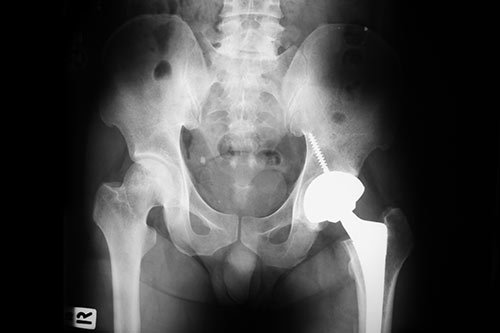Faculty of Health Sciences
-
 HIV, menopause and musculoskeletal health
Understanding the impact of HIV infection and menopause on the musculoskeletal health of African women.
HIV, menopause and musculoskeletal health
Understanding the impact of HIV infection and menopause on the musculoskeletal health of African women. -
 Research helps define and improve the management of ‘medical manslaughter’ cases
Dr Oliver Quick is a recognised authority in Criminal Law and Medical Law, with a special interest in patient safety. His recent research has focused on how prosecutors and experts negotiate criminal law and process in these controversial cases.
Research helps define and improve the management of ‘medical manslaughter’ cases
Dr Oliver Quick is a recognised authority in Criminal Law and Medical Law, with a special interest in patient safety. His recent research has focused on how prosecutors and experts negotiate criminal law and process in these controversial cases. -
 Bridging Gaps in primary healthcare for women with complex needs
A co-produced intervention that not only successfully increased the number of women with complex needs accessing mainstream healthcare, but also empowered the women concerned to act as champions and advocates in their community.
Bridging Gaps in primary healthcare for women with complex needs
A co-produced intervention that not only successfully increased the number of women with complex needs accessing mainstream healthcare, but also empowered the women concerned to act as champions and advocates in their community. -
 Delivering equality of support for parents with learning difficulties
Without early and on-going support these families often face extremely complex difficulties resulting in concerns about neglect by omission – not knowing how to look after their children, rather than deliberate abuse.
Delivering equality of support for parents with learning difficulties
Without early and on-going support these families often face extremely complex difficulties resulting in concerns about neglect by omission – not knowing how to look after their children, rather than deliberate abuse. -
 Taking action on mortality reviews of people with learning disabilities
Bristol is now a leading institution for the study of mortality of people with learning disabilities, not only nationally but also internationally.
Taking action on mortality reviews of people with learning disabilities
Bristol is now a leading institution for the study of mortality of people with learning disabilities, not only nationally but also internationally. -
 Research leads to practical support for young people with continence problems
Bladder and bowel problems are very common and can be affected by psychological issues and stressful life events in a child’s life. There is also strong evidence that bladder and bowel problems affect the mental health of children, young people and their parents.
Research leads to practical support for young people with continence problems
Bladder and bowel problems are very common and can be affected by psychological issues and stressful life events in a child’s life. There is also strong evidence that bladder and bowel problems affect the mental health of children, young people and their parents. -
 Generation Snowstorm – a Social Change Summer School as a mental health intervention
Off The Record (OTR) Bristol is an innovative young people's mental health charity with a focus on engaging young people in service design and delivery. Over 2017-18 Dr Nathan Eisenstadt collaborated with OTR on a Knowledge Exchange project funded by Bristol's ESRC Impact Acceleration Account.
Generation Snowstorm – a Social Change Summer School as a mental health intervention
Off The Record (OTR) Bristol is an innovative young people's mental health charity with a focus on engaging young people in service design and delivery. Over 2017-18 Dr Nathan Eisenstadt collaborated with OTR on a Knowledge Exchange project funded by Bristol's ESRC Impact Acceleration Account. -
 Phasing out all-metal hip replacements
Research revealing the relatively high failure rates of metal-on-metal implants in hip replacement surgery has led to a dramatic decline in their use.
Phasing out all-metal hip replacements
Research revealing the relatively high failure rates of metal-on-metal implants in hip replacement surgery has led to a dramatic decline in their use. -
 Improving accuracy of diagnosis for childhood leukaemia
New cell analysis procedures have led to improved diagnostic techniques and national standards for cell processing.
Improving accuracy of diagnosis for childhood leukaemia
New cell analysis procedures have led to improved diagnostic techniques and national standards for cell processing. -
Driving responsible use of antimicrobials
Researchers, practitioners and industry bodies across the food chain successfully combined forces for changes in antimicrobial use on farms and in veterinary practices.
-
Bristol-led project improves the welfare of farm animals
Welfare outcome measures and enhanced farm animal management have had a major impact on farming practices and provide greater assurance for consumers.
-
Helping policy makers create an effective vaccination strategy for meningitis B
Research by the University of Bristol supported the UK government’s decision to introduce a new vaccine for UK infants that has led to a 75% reduction in cases.
-
Transforming healthcare for women experiencing domestic violence and abuse
Bristol leads evaluation and rollout of IRIS programme that improves training and support in GP practices.
-
Transforming care for patients vulnerable to irreversible kidney failure
Research leads to more targeted and less damaging therapy for nephrotic syndrome.
-
Discoveries lead to better and safer hip and knee replacements
Research profoundly changes the practice of joint replacement globally.
-
Confronting worker exploitation in electronics manufacturing
New research on links between reward and learning can bridge the gap between neuroscience and education, offering the chance to improve scientific understanding of learning amongst teachers.
-
Better IVF outcomes
Research improves understanding of effectiveness and risks.
-
Optimising treatment for prostate cancer
Bristol has contributed to research that provides a new evidence base for improving care and reducing harm caused by treatments.
-
A radical advance in the treatment of age-related macular degeneration
Research leads to increased availability of lower-cost treatment for a major worldwide cause of sight loss.
-
Discoveries lead to better and safer hip and knee replacements
Research profoundly changes the practice of joint replacement globally.
-
The fight to eliminate hepatitis C
Research provides evidence for the effectiveness of treatment and prevention programmes that have influenced international healthcare policies and reduced cases worldwide.
-
A radical advance in the treatment of age-related macular degeneration
Research leads to increased availability of lower-cost treatment for a major worldwide cause of sight loss.